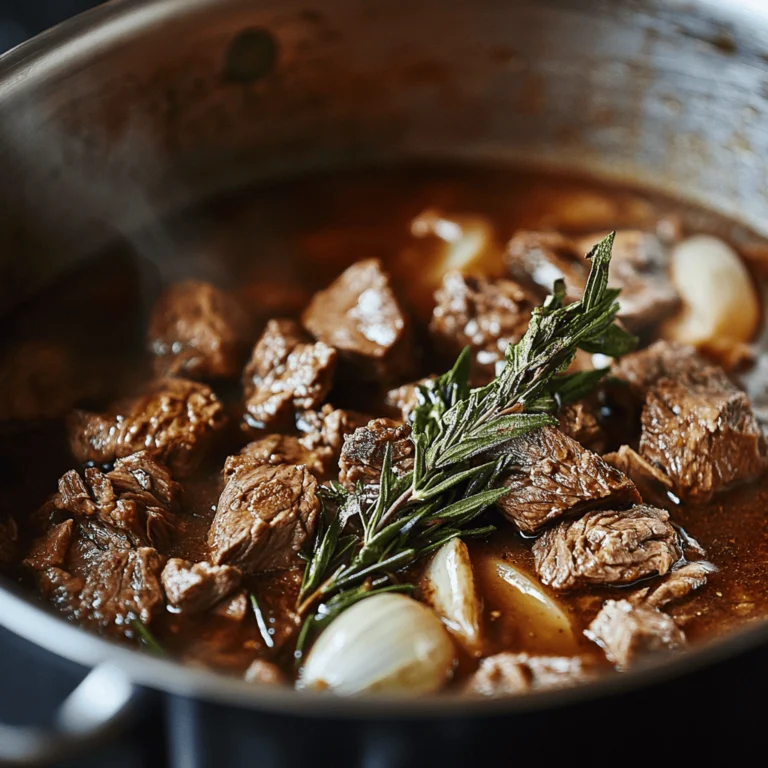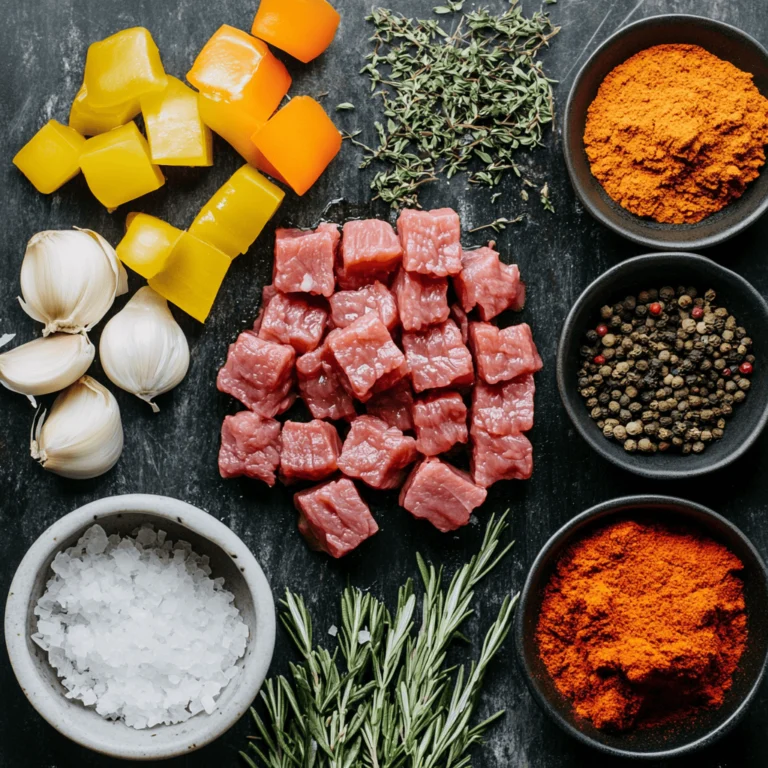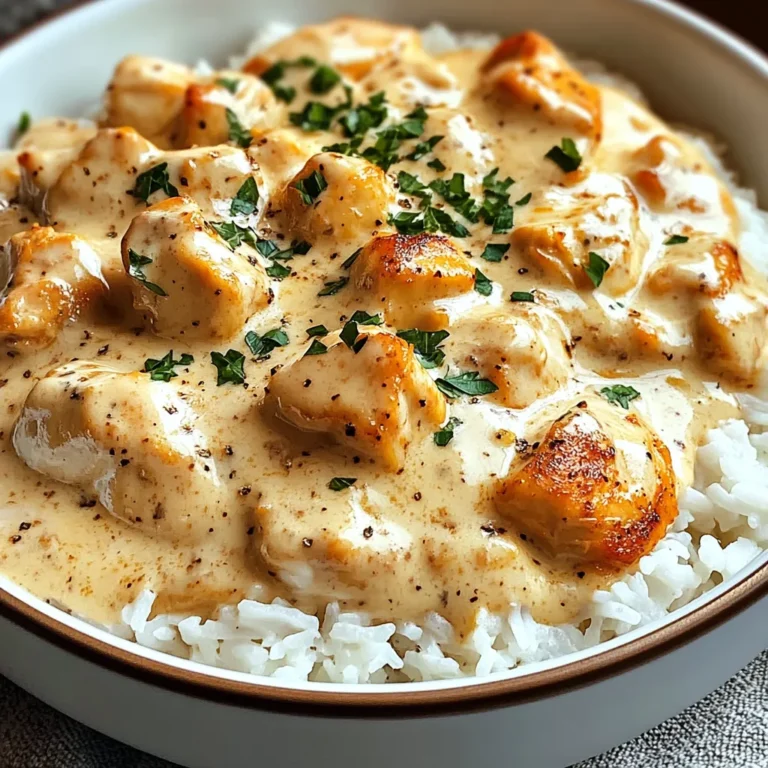There’s nothing quite like the warmth and comfort of a hearty stew, especially when the spices are just right. If you’ve ever felt that your stew lacked that perfect depth of flavor, it’s likely that the right spices for stew were missing. But fear not — I’m about to share the must-have spices that will take your beef stew from bland to absolutely irresistible. Whether you’re a busy mom juggling work and family or just someone looking for a deliciously easy meal, these spices will transform your stew into a soul-warming dish.
Which Spices Are Best for Stew?
When it comes to stew, the spices are what make the dish truly shine. Stews are slow-cooked to perfection, which means they have plenty of time to absorb all the delicious flavors. So, which spices should you reach for when making beef stew? Here’s a list of the most essential ones:
- Thyme – This herb is a classic for any stew. Its earthy flavor complements the richness of the beef and adds a subtle, comforting note that lingers throughout the dish.
- Bay Leaves – These leaves infuse the stew with a mild, herbal flavor. Simply add one or two to your stew while it simmers, and don’t forget to remove them before serving.
- Garlic Powder – If you don’t have fresh garlic, garlic powder works wonders! It’s a must for adding that savory, aromatic flavor to your stew without the hassle.
- Onion Powder – Similar to garlic powder, onion powder adds a savory depth to your stew, enhancing the overall flavor profile without needing to chop onions.
- Paprika – Sweet or smoked, paprika adds a subtle sweetness and a touch of smokiness, perfect for rounding out the other flavors in the stew.
- Black Pepper – Freshly cracked black pepper is a must. It adds a sharp, peppery kick that balances the richness of the beef and the other spices.
- Rosemary – If you’re in the mood for a more robust flavor, rosemary is an excellent addition. It’s a strong, piney herb that pairs well with hearty stews.
- Cumin – A small pinch of cumin adds a warm, earthy flavor that enhances the stew’s richness, giving it that extra depth.
By combining these spices for stew, you’ll be able to create a beef stew that’s bursting with flavor and perfect for any occasion.
Why These Spices Are Essential for Your Beef Stew
The beauty of stews lies in the way they allow flavors to meld and intensify. When you add the right spices for stew, each bite becomes a comforting experience. Whether it’s the soothing, herbal notes from thyme and bay leaves, the savory punch from garlic and onion powder, or the earthy warmth from cumin and paprika, these spices work together to create a stew that feels both familiar and exciting.
Practical Tips / Cooking Tips
- Go easy on the salt: If you’re using store-bought broth, it might already contain salt. Add the salt gradually, tasting as you go to ensure you don’t overdo it.
- Layer your flavors: Add spices early in the cooking process so that they have time to infuse the stew. You can also finish the stew with a pinch of fresh herbs right before serving for an extra burst of flavor.
- Use fresh spices if possible: If you have fresh herbs like rosemary or thyme, they’ll elevate the dish even more. If not, dried herbs work just as well — just remember that dried herbs are more potent than fresh, so use a little less.
Nutritional Value / Health Benefits
These spices for stew aren’t just for flavor — they offer several health benefits too!
| Nutrient | Amount | % Daily Value |
|---|---|---|
| Calories | 15 | 1% |
| Protein | 1g | 2% |
| Fiber | 1g | 4% |
| Iron | 1mg | 5% |
- Iron: The combination of garlic, bay leaves, and thyme provides a nice boost of iron, which helps with energy and overall health.
- Antioxidants: Paprika, cumin, and rosemary are rich in antioxidants, which help fight inflammation and support heart health.
- Natural flavor enhancers: These spices boost the flavor of your stew without adding extra fat, sugar, or sodium, making your meal healthier and more satisfying.

Recipe Overview
Creating the perfect beef stew starts with the right spices for stew, and once you have the seasoning mix, it’s all about letting it simmer. Here’s a quick summary of the key steps:
- Combine your spices in a small bowl.
- Add the seasoning to your beef stew as it simmers.
- Taste and adjust if necessary — it’s your stew, make it perfect!
Ingredients
Here’s the spice blend that will make your beef stew irresistible:
| Ingredient | Quantity | Substitute Option |
|---|---|---|
| Onion Powder | 2 tbsp | Shallot Powder |
| Garlic Powder | 1 tbsp | Fresh Garlic (minced) |
| Dried Thyme | 1 tbsp | Dried Rosemary |
| Dried Bay Leaves | 2 leaves | Ground Bay Leaf |
| Salt | 1 tsp | Kosher Salt |
| Black Pepper | 1 tsp | White Pepper |
| Paprika | 1 tsp | Smoked Paprika |
| Cumin | 1/2 tsp | Coriander |
Instructions
- Combine the spices: In a small bowl, mix together the onion powder, garlic powder, dried thyme, bay leaves, salt, black pepper, paprika, and cumin.
- Add to your stew: Stir in 2 tablespoons of this spice mix to your beef stew as it cooks. Let it simmer for at least 20 minutes to allow the flavors to meld.
- Taste and adjust: Once your stew has finished cooking, give it a taste. Add more salt, pepper, or spices if needed to suit your taste.
If you’re looking for even more ways to elevate your beef stew, check out The Best Homemade Beef Stew Seasoning Recipe for a rich and flavorful twist!
FAQs
Can I substitute any of the spices in this recipe?
Yes! If you don’t have thyme, you can use rosemary or oregano. If you prefer a more citrusy flavor, try adding a pinch of lemon zest.
How can I make my stew spicier?
If you like heat, add a dash of cayenne pepper or a few fresh chili slices to the stew as it simmers.
Conclusion
This must-have seasoning for beef stew is all you need to turn your dish into a flavor-packed meal. With just a few key spices, your stew will be bursting with warmth, depth, and a perfect balance of flavors. Quick, easy, and delicious — this recipe is your go-to for a comforting and satisfying meal every time.
Give it a try and watch your family savor every bite!
Print
Must-Have Spices for Stew: Craft a Flavorful Beef Stew Every Time
- Total Time: 25 minutes
- Yield: Makes enough seasoning for 4-6 servings of beef stew
Description
This must-have spices for stew recipe will transform your beef stew into a flavorful masterpiece. Quick, easy, and bursting with savory goodness, it’s the perfect addition to your dinner rotation.
Ingredients
- Onion Powder: Shallot Powder
- Garlic Powder: 1 tbsp
- Dried Thyme: 1 tbsp
- Dried Bay Leaves: 2 leaves
- Salt: 1 tsp
- Black Pepper: 1 tsp
- Paprika: 1 tsp
Instructions
- Combine the spices: In a small bowl, mix together the onion powder, garlic powder, dried thyme, bay leaves, salt, black pepper, paprika, and cumin.
- Add to your stew: Stir in 2 tablespoons of this spice mix to your beef stew as it cooks. Let it simmer for at least 20 minutes to allow the flavors to meld.
- Taste and adjust: Once your stew has finished cooking, taste and adjust the seasoning. Add more salt, pepper, or spices if needed to suit your taste.
Notes
- For an extra kick, you can add cayenne pepper or fresh chili slices.
- Rosemary or oregano can be used as a substitute for thyme if needed.
- Prep Time: 5 minutes
- Cook Time: 20 minutes
- Category: Seasoning, Main DishMixing
- Method: Mixing
- Cuisine: American
Nutrition
- Serving Size: 1 tablespoon of seasoning
- Calories: 20
- Sugar: 0
- Sodium: 250mg
- Fat: 0
- Saturated Fat: 0
- Unsaturated Fat: 0
- Trans Fat: 0
- Carbohydrates: 5g
- Fiber: 1g
- Protein: 1g
- Cholesterol: 0







